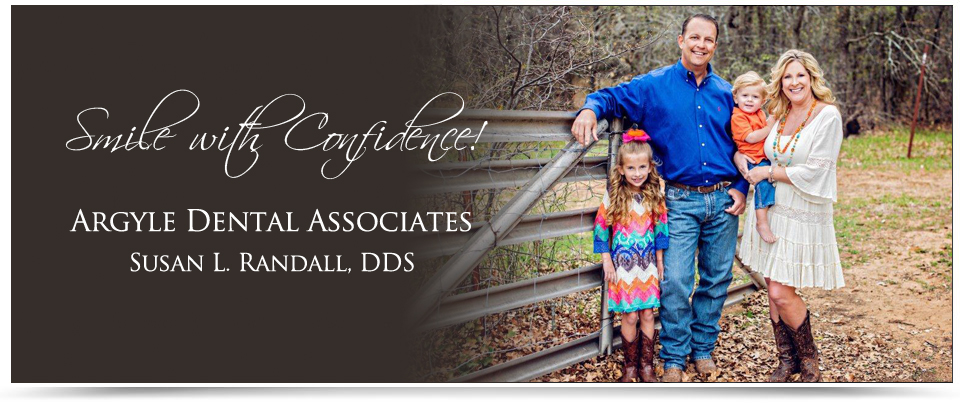Services
Restorative Care
Years of wear and tear, injury, or poor care can hurt the look and function of your teeth. Dr. Randall changes lives every day through restorative dentistry. Rejuvenate your smile today!
Implants
Are you missing teeth? Have you postponed getting a bridge or denture? Do you wear ill-fitting, loose dentures right now? Dr. Randall wants to improve your quality of life with dental implants.
As the prosthetic that most closely mimics nature’s design, dental implants serve as substitute tooth roots. Each implant is strategically placed in the jaw, where bone integrates with it to create a solid foundation for a crown, bridge or denture. With proper care, dental implants can last a lifetime.
Benefits of dental implants:
- Promote bone retention
- Eliminate slipping, loose, and wobbly dentures
- Don't require support from healthy teeth
- Can last a lifetime
- Look, feel, and function like natural teeth
Dr. Randall works with many different skilled surgeons. They work closely during every step of your implant procedures.
Implant-supported Dentures
While typical dentures shift and require the use of denture adhesives to keep them in place, implants fit solidly, reducing the problems associated with traditional dentures such as gum sores, difficulty speaking and difficulty chewing. Implant supported dentures distribute your biting pressure more like natural teeth than traditional dentures, stimulating the supportive structures of your teeth and preventing the bone and soft tissues from shrinking away. You can replace an entire set of teeth with beautiful, natural-looking implants.
Dentures
A properly fitting denture is very important. A good fit ensures that your dentures will allow you to retain much of your function, which is important for maintaining natural muscle tone in your face and jaw. Dentures will keep you looking and feeling healthy, and will help you retain a natural lifestyle. A lifelike smile and the best possible fit - those are two of the primary goals that Dr. Randall will achieve if you need dentures to restore your smile.
Partial Dentures
Partial dentures are used if you have several teeth missing that cannot be corrected with a bridge. A partial denture is created to replace those teeth. The partial denture is removable and designed to fit comfortably and blend in with any remaining teeth. This type of denture is made from a synthetic material that is supported with a lightweight metal. It mimics your gum tissue and teeth to create a natural-looking smile while still remaining functional. The partial is important once the teeth have been removed to preserve the bone and to keep existing teeth from tilting and growing in towards the gaps.
Crowns
You can erase years of wear and tear with porcelain crowns. Dr. Randall uses a tooth-like crown made of porcelain to restore your tooth after the decay has been removed. Crowns are also used to restore chipped teeth, broken teeth, gaps in teeth and other damage. Also called "caps," porcelain crowns mimic natural-looking teeth in shape and color.
Bridge
If you’ve lost a tooth, a large gap in your smile can create significant problems for your dental health if left uncorrected. Gradually, your bite pressure may shift to other parts of your mouth to compensate for an inability to chew efficiently in the area of the missing tooth. Neighboring teeth may begin to move into the gap resulting in discomfort, pain and more problems in the future. After some preparation of the two neighboring teeth, crowns are created for them. A prosthetic tooth, or pontic, is fused between the crowns. Fixed bridges literally "bridge the gap" in your smile. Dr. Randall creates a functional, life-like bridge to correct your smile, restore your bite and alleviate your discomfort.
Inlays/Onlays
Sometimes removing tooth decay effectively requires the removal of a portion of your tooth. The removed portion is replaced with a porcelain inlay or onlay. Dr. Randall customizes an inlay or onlay to fill the space left behind when the part of your tooth is removed. Traditionally, inlays and onlays were made out of metal, much like traditional filings. Now, porcelain-milled inlays and onlays are virtually indistinguishable from natural teeth and provide relief from chewing pain, cavity pain and tooth degeneration.
TMD
You may suffer from headaches, a popping jaw when you open or close your mouth, and pain in your jaw joints and muscles. This could signify problems with your Temporomandibular Joint. A healthy jaw joint does not make any noise. Clicking or popping in the joint may be an indication of strain or long-term injury. The joint problem may be a result of trauma, complications with your bite, or grinding or clenching your teeth or a combination of these factors. TMD or Temporomandibular Joint Dysfunction, is a condition that affects many people, but the good news is it can often be treated. Based on the severity of your condition, we can recommend a course of treatment that will help alleviate your pain and make your day-to-day activities more pleasant. If you are experiencing or have experienced clicking, popping or pain in your jaw joint, ask a team member today if you might benefit from this treatment.
|


